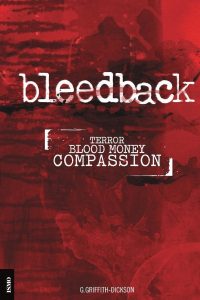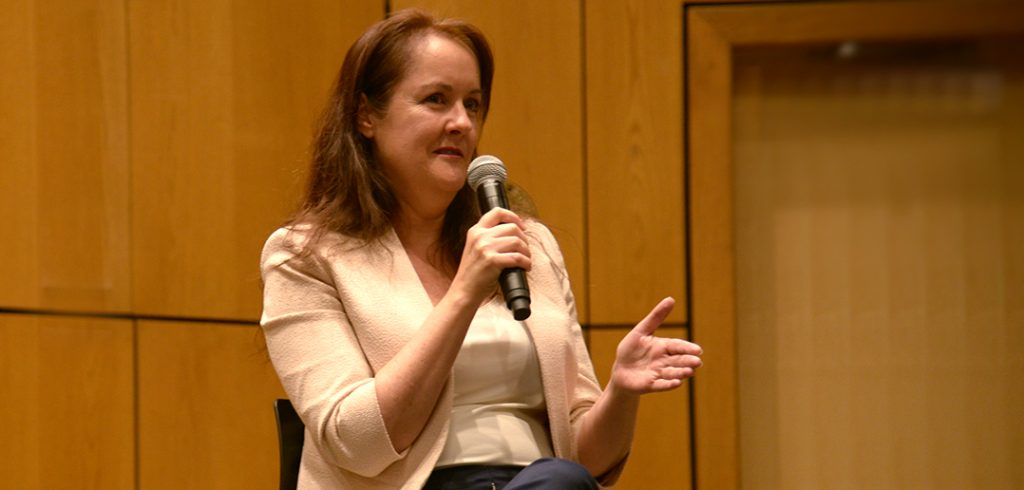Griffith-Dickson, who is also the parent of a Fordham senior, said that her past role as an adviser to the British and American governments in their counterterrorism efforts prevented her from writing a tell-all book. But in writing fiction, she was able to explore political and theological dilemmas inherent to the “War on Terror.”
 She said she found it strange that many novels on the subject belittle the reality of terror. Most are paperbacks intended for airport purchases and a quick read. Such books often portray Muslims in a negative light and exalt heroes from the West.
She said she found it strange that many novels on the subject belittle the reality of terror. Most are paperbacks intended for airport purchases and a quick read. Such books often portray Muslims in a negative light and exalt heroes from the West.
“These are some of the most serious issues of our day,” she said. “Why are we taking the really serious stuff and making it trivial?”
Patrick Hornbeck, Ph.D., chair of the Department of Theology, which hosted the event, called Griffith-Dickson’s novel an intellectual book that had much to do with a clash of ideas, things not usually featured in a mass market thriller.
“This is the first novel I read with footnotes,” he said.
A native of Hawaii, Griffith-Dickson has formed a nonprofit organization called the Lokahi Foundation. (Lokahi means harmony and balance in Hawaiian.) She said she has been worried about foreign fighters coming home radicalized. In particular, young, male adolescents growing up in the West since 9/11 have been ostracized, even if they do well in school and come from financially stable homes. Groups like ISIS often recruit them through social media, sometimes direct-messaging about 40 times a day.
“People are attracted to violent groups because core needs are not being met, it’s not always about a need for spiritual meaning,” she said.
The foundation works with both the Muslim community and the government to help prevent terror attacks.
As such, she said, her work has helped her gain alternate perspectives in the anti-terrorism fight. In fact, her novel’s three primary protagonists—an ayatollah from Iran, a former Al Qaeda strategist, and a Russian spy—are all characters who fall outside the stereotypical Western point of view.
Griffith-Dickson said that financial motives for war, propagated by the West, often undercut peace efforts at home. She called it a perfect storm “where there are huge profits to be made” by companies to keep the war effort going. Even the “most dove-like” members of Congress “are under pressure not to cut budgets while our young people are in harm’s way,” lest they be labeled unpatriotic, she said.
And while privatization of certain militaristic options is acceptable, the same governments don’t consider outsourcing community relations, she said.
“[Lokahi] didn’t work with a single young man who didn’t have father issues,” she said. “Police and government officials don’t always get that it’s the people in the community that know how to deal with their young.”

